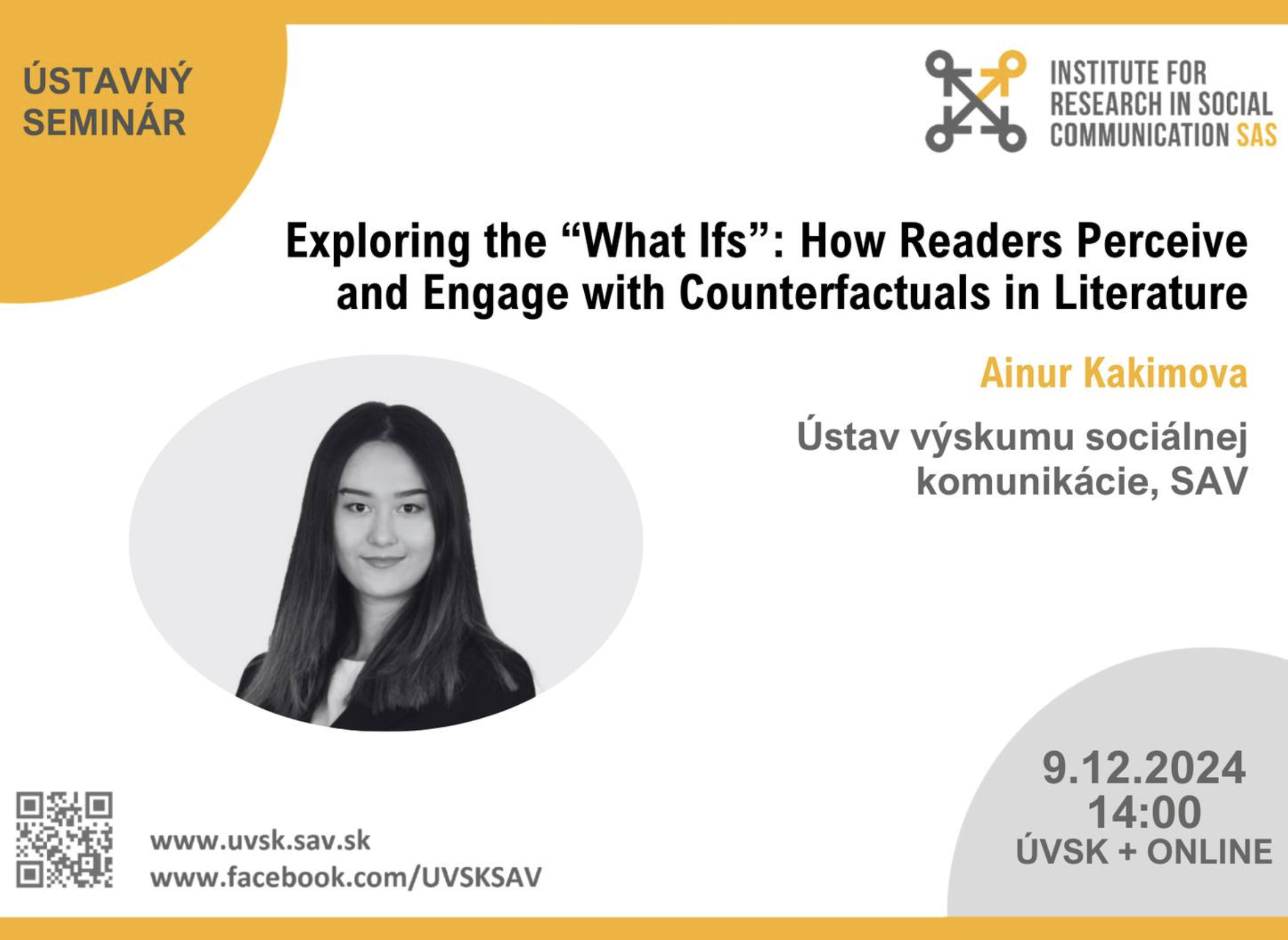You are cordially invited to the Institute’s seminar entitled “Exploring the “What Ifs”: How Readers Perceive and Engage with Counterfactuals in Literature”. Our colleague Ainur Kakimova will present the results of her dissertation, in which she investigated how both native and second-language readers perceive and evaluate counterfactuals, with a focus on their impact on comprehension and emotional engagement.
The seminar will take place on 9.12.2024 at 14:00 in a hybrid format (UVSK + online). If you are interested in online participation, please fill in the simple form: https://forms.gle/mcKCWzFN2kTPXTpp8
You will receive the access data for the online meeting on the day of the seminar. The maximum number of participants outside the UVSK SAV is 50 people.
Abstract: Counterfactuals – “what if” scenarios imagining events that could have happened but did not – are powerful literary devices that enrich narratives and challenge readers to engage in complex cognitive and emotional processes. This presentation examines how native and second-language readers perceive and evaluate counterfactuals, focusing on their impact on comprehension and emotional engagement. Through case studies of The Snows of Kilimanjaro by Ernest Hemingway and Fatherland by Robert Harris, I analyze counterfactuals at the micro level, as reflections on unactualized events, and the macro level, where they construct alternative historical worlds. Grounded in the possible worlds framework, my research integrates findings from eye-tracking experiments and self-report studies, revealing that readers engage with counterfactuals through imagination, evaluation, and emotional response. While second-language readers expend greater cognitive effort, their comprehension is comparable to that of native readers. By illustrating how counterfactuals shape the reading experience, this study highlights their unique role in deepening narrative complexity and offering fresh insights into reader engagement.







